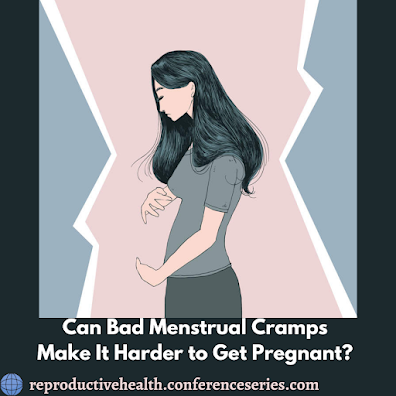Can bad menstrual cramps make it difficult to conceive?
If you have painful periods, the idea of having trouble conceiving has probably crossed your mind. While any pregnancy can have risks, women who have painful periods may have underlying concerns that are affecting their chances of becoming pregnant.
Menstruation
is inherently painful, but it should not interfere with your regular life.
While there are many factors that contribute to infertility issues,
understanding the root of the problem might help you treat the problem more
quickly. To help you get a head start on learning about the causes of painful
menstruation, we've compiled a list of the most common causes.
Underlying
Causes of Painful Periods:
Fibroids
Uterine
fibroids are highly frequent growths that occur on the smooth muscle of the
uterus, with approximately three out of four women having one at some point in
their lives. Although these aberrant tumours are not malignant, they can cause
severe cramping and persistent bleeding. Extreme cases of uterine fibroids can
reduce fertility and increase the chance of miscarriage;
surgical excision of a fibroid growth or hormone treatment may be necessary.
Endometriosis
Endometriosis
is a condition in which endometrium — the mucous membrane that borders the
uterus – grows outside of the uterus. Endometrium is thought to spread through
the fallopian tubes to other parts of the body, including the pelvic floor,
ovaries, and possibly the bowels. This causes excruciating pain throughout menstrual
periods and has been connected to a variety of health problems.
Adenomyosis
Endometrium
grows in the uterine wall, causing adenomyosis. Although it is unknown if
adenomyosis impacts fertility directly, it frequently produces excessive
bleeding, severe cramping, and painful intercourse.
PID (Pelvic
Inflammatory Disease)
Another
probable cause of unpleasant menstrual cramps is a pelvic inflammatory
disease (PID), which is usually linked to an untreated medical condition.
PID is a condition in which scar tissue forms as a result of an infection in
the reproductive organs. During a menstrual cycle, this web-like scarring
between the ovaries, fallopian tubes, and uterus causes greater discomfort.
Ovarian
Cysts
Ovarian
cysts are fluid-filled sacs that develop on the ovary's surface. Cysts can
develop from unfertilized eggs. if the sac in which the egg is formed does not
disintegrate completely Ovarian cysts, while usually benign, have the potential
to become malignant. PCOS is a disorder marked by the formation of tiny cysts
on the ovaries, excessive levels of certain hormones, and irregular
menstruation, all of which can lead to fertility problems in the future. Most
women will acquire an ovarian cyst at some point in their lives, which is why
any discomfort during a pelvic exam should be mentioned.


.png)
.png)
Comments
Post a Comment